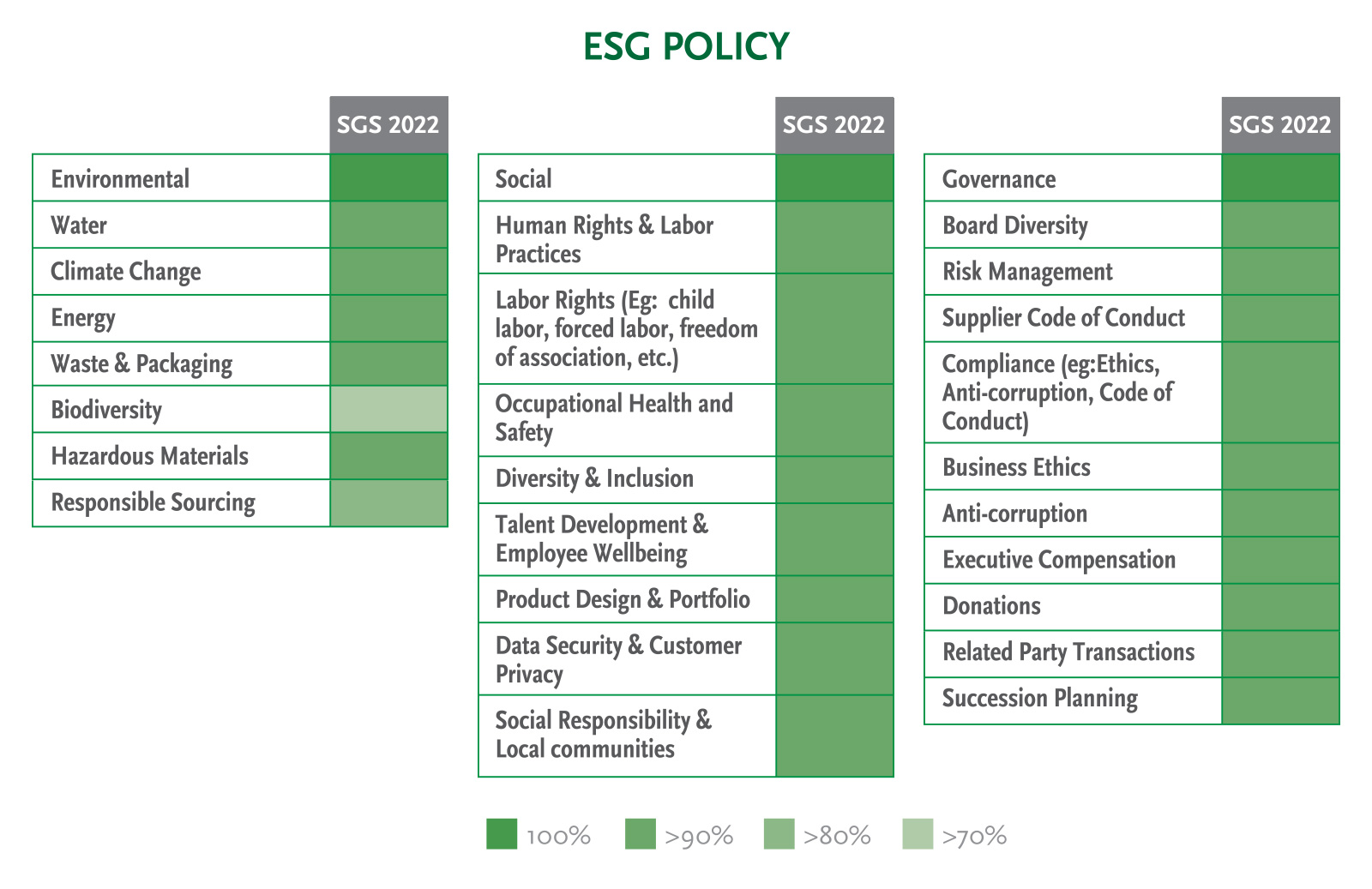
Recommendations
The Board should provide guidance on sustainability and set the tone at the top: Board’s role is to ensure a systematic approach that sustainability governance is adopted by the organization. Companies should identify priority sustainability objectives and demonstrate commitment in material sustainability areas.
Define commitments for sustainability through policy and cover all ESG relevant dimensions: The scope of sustainability issues that need to be covered should include a comprehensive set of subjects such as safety, health, environmental, and community impact; human rights, labor rights, anti-corruption, and business ethics.
Environmental policy can cover climate change, energy, waste & packaging, water, responsible sourcing, hazardous materials, and biodiversity.
Social policy can cover a wide range of issues including health & safety, human rights, non- discrimination, child labor, diversity inclusion, gender equality.
Governance policy should cover executive compensation, anti-corruption, business ethics, risk management, supplier code of conduct, donations, related party transactions, board diversity, and succession planning.
Ensure policy covers and is adopted by all relevant stakeholder groups including employees, supply chain and communities: Companies should ensure implementation of the policy in all levels of the organization and across the supply chain. Another key issue to consider is the standards of conduct and level of implementation in all jurisdictions that the company operates in. OECD Guidelines for Multinational Enterprises particularly focus on this issue.
Regularly review the policy, benchmark with peers and collaborate with sector standards and best-practice examples to keep the policy relevant to changing conditions.
